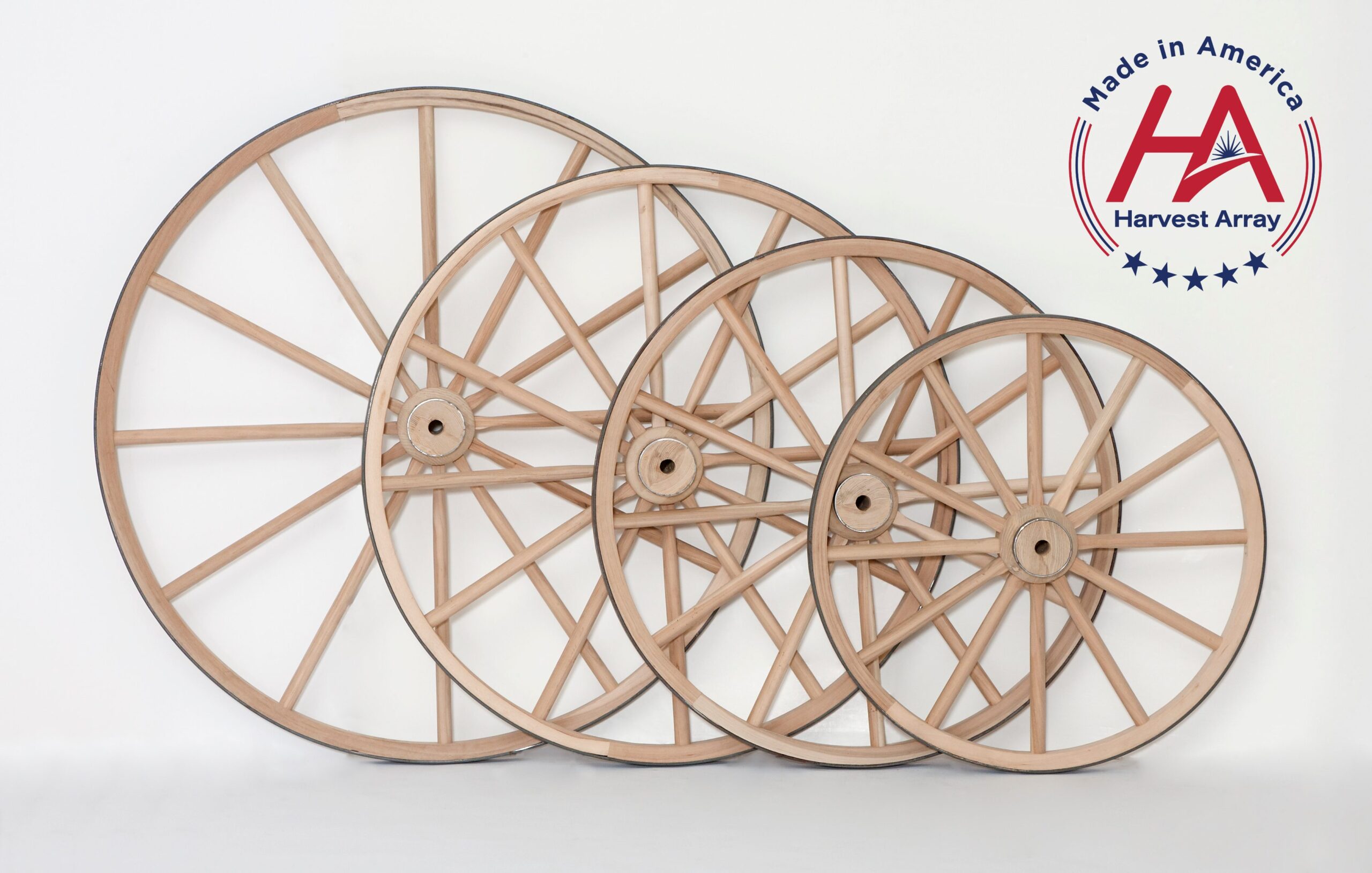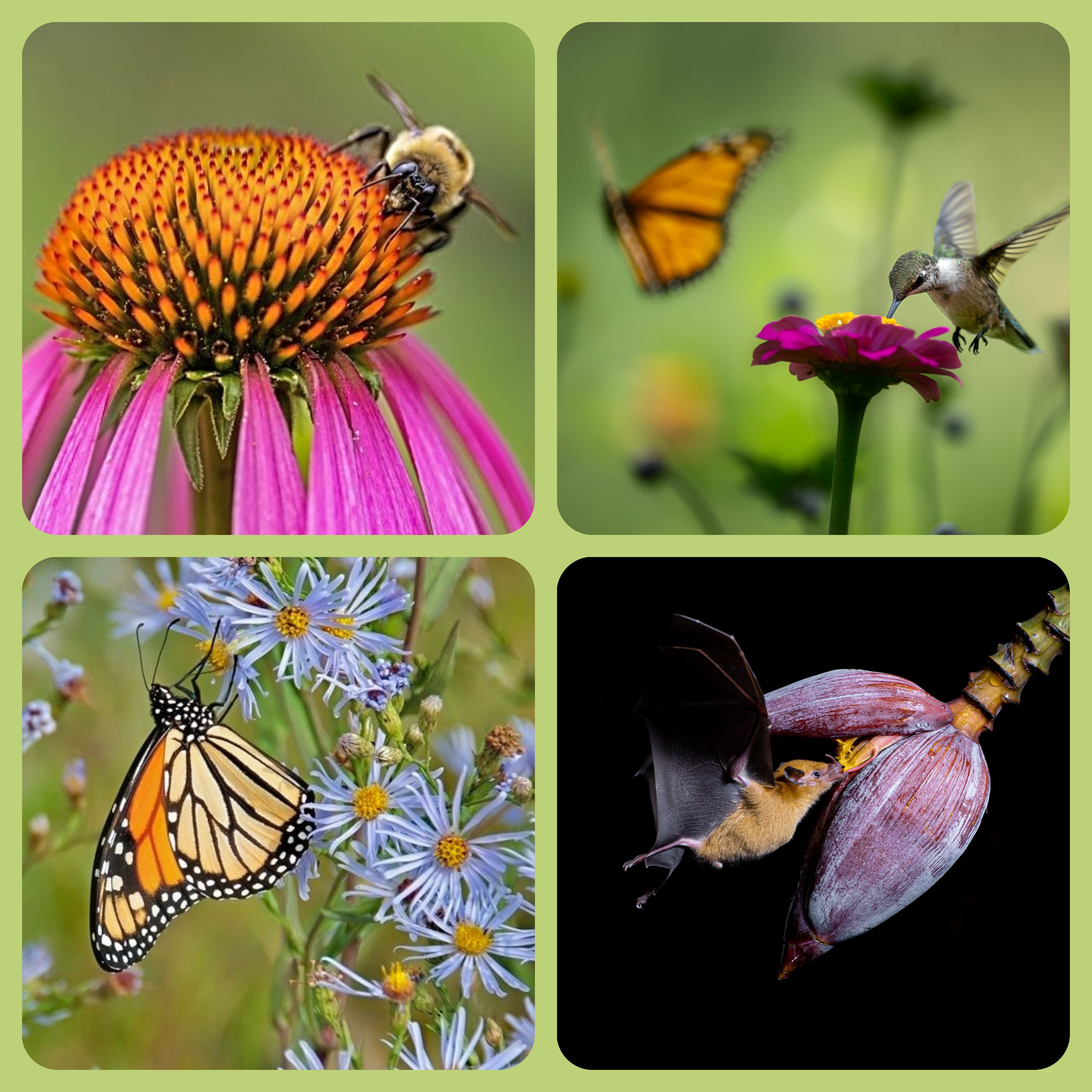National Pollinators Month is celebrated to raise awareness of the great importance of bees, butterflies, hummingbirds, bats and other insects and small mammals to our everyday lives.
What are Pollinators
A pollinator is anything that helps carry pollen from the male part of a flower to the female part of the same or another flower. This causes the plant to be fertilized and then produce fruits, seeds, and plant offspring.
Pollen can be carried by water or wind, but the most important pollinators are insects such as bees, wasps, moths, butterflies, and flies as well as birds, bats, and other small mammals. Hummingbirds are amazingly adapted pollinators, and they also play an important role in pollination.
Why are pollinators so important that they need to be celebrated for an entire month?
- Without pollinators, we would have little to no food
- One out of every three bites of food you eat exists because of the efforts of pollinators, including many fruits, vegetables, and seeds. Pollinators not only are necessary for our own food but also support the food and habitat of animals.
- Healthy ecosystems depend on pollinators.
- At least 75 percent of all the flowering plants on earth are pollinated by insects and animals! This amounts to more than 1,200 food crops and 180,000 different types of plants—plants which help stabilize our soils, clean our air, supply oxygen, and support wildlife.
- A healthy economy also depends on pollinators.
In the United States alone, pollination by honeybees contributed to over $19 billion of crop production in 2010, while pollination by other insect pollinators contributed to nearly $10 billion of crop production.
History of National Pollinators Month
In 2005, there was true evidence of a national decline in the number of pollinators, especially bees, in the United States, largely due to habitat loss and pesticide poisoning. With increased awareness of this detrimental issue, National Pollinators Week began back in 2007 when the U.S. Senate passed sanctions regarding it as a Nationally recognized week.
S.Res.580 – A resolution recognizing the importance of pollinators to ecosystem health and agriculture in the United States and the value of partnership efforts to increase awareness about pollinators and support for protecting and sustaining pollinators by designating June 24 through June 30, 2007, as “National Pollinator Week”.
109th Congress (2005-2006)
This year, June 19-25, 2023, is National Pollinators Week.
But just a week was not enough time to spread the word and make a difference, so the National Wildlife Federation initiated June as National Pollinators Month.
How Can We Celebrate National Pollinators Month
- Like all living things, pollinators need food, water, and shelter. Plant a variety of colorful flowers that bloom at different times of the year. Keep your garden healthy by watering it regularly and keeping it free of weeds. You and the pollinators will reap the benefits of a beautiful backyard garden.
- Give your pollinators shelter from the elements and from predators. Provide birdhouses and bat houses from harvestarray.com to keep them safe.
- Birdbaths are a good way to provide a clean source of water for the busy pollinators.
- Do not use pesticides which harm these precious pollinators.
- In the fall, “Leave the leaves.” Resist the urge to rake your leaves. Dead leaves and plant material are food and shelter for pollinators in the winter.
- Teach your children to respect these creatures by educating them about just how vital pollinators are to our survival. Take a trip to your local library and learn together.

References:
About Pollinators | Pollinator.org




